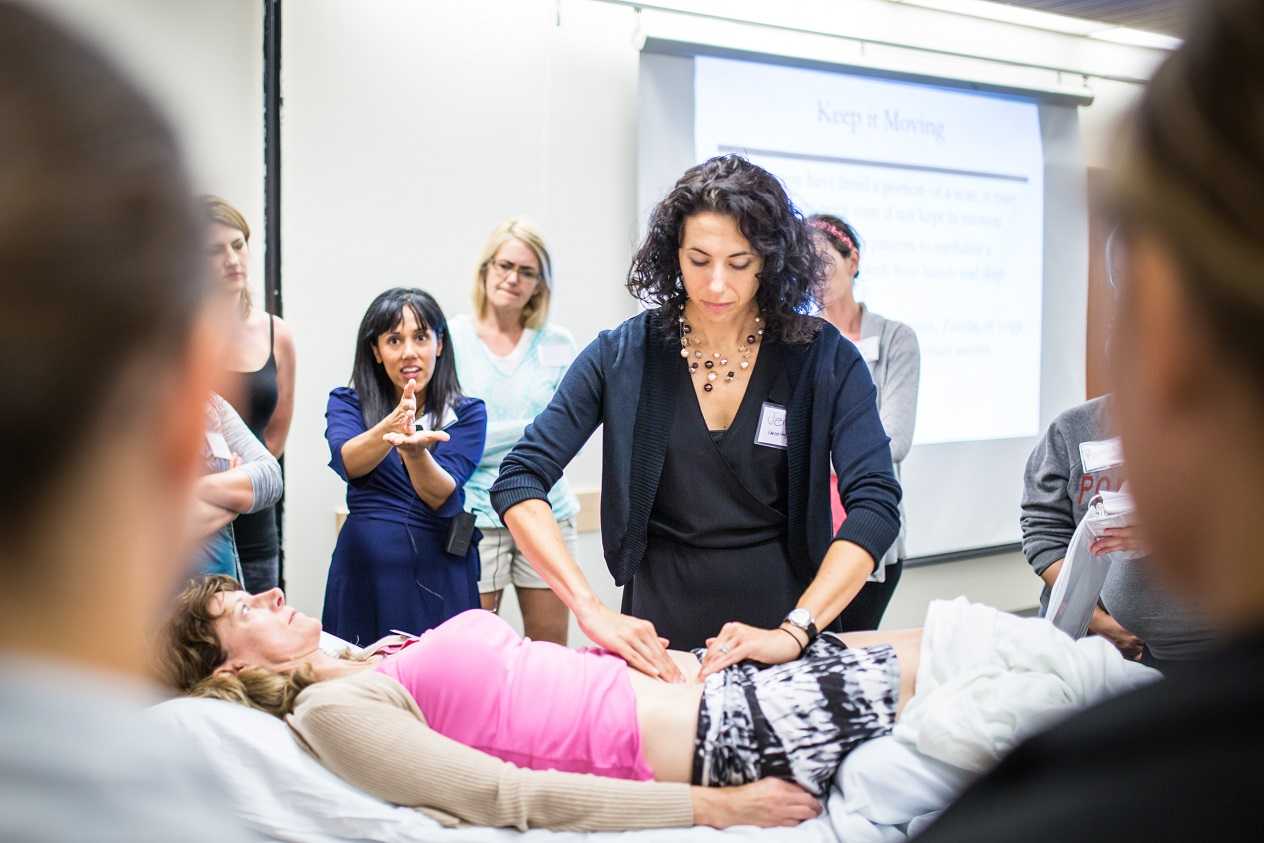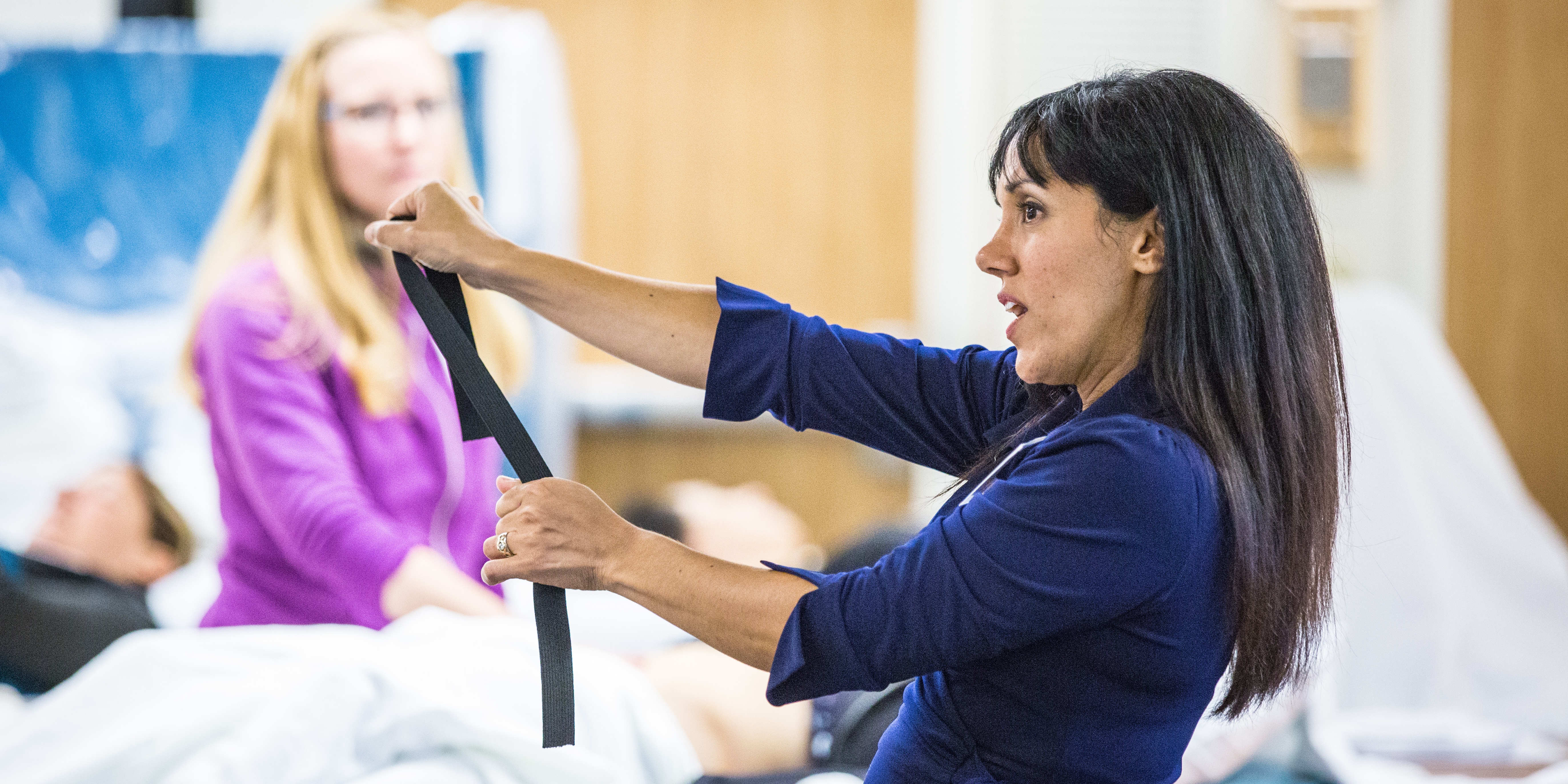
This post was written by guest-blogger, H&W faculty member Michelle Lyons. You can catch Michelle teaching our Pregnancy and Postpartum series courses, Pelvic Floor Series courses, as well as our new courses on Oncology and the Pelvic Floor and the Athlete and the Pelvic Floor. Michelle lives in Ireland and was an integral part of bringing Institute founder, Holly Heman, to the UK to teach two courses this spring.
As a longtime fan of Holly Herman's work, it has been my pleasure to help bring her depths of knowledge and unforgettable teaching style first to London to teach Pelvic Floor Level 3 and then on to Dublin to allow us Irish PT’s the honor of being the first to attend her new course, Sexual Medicine for Women & Men.
We had 26 therapists travel to Dublin from all over Ireland, Northern Ireland, Scotland and England as well as one intrepid PT who flew to us from Saudi Arabia!
This blog was written by H&W faculty member Jenni Gabelsberg DPT, MSc, MTC, WCS, BCB-PMD. You can catch Jenni teaching Care of the Postpartum Patient later this month in Oakland, CA.
Physical Therapists specializing in Women’s Health are in a unique position to help guide and inspire women during their perinatal years, affecting both the health of the woman, as well as the long-term health of any unborn children.
In a recent study published in The Journal of Perinatal and Neonatal Nursing, early onset childhood obesity was determined to be one of the leading pediatric health concerns in the US. Women in their peripartum years need to be educated on what the risk factors for childhood obesity are, and how their personal health decisions can affect their children even before they are conceived. These risk factors are stated as being: maternal obesity at time of conception; excessive weight gain during pregnancy; smoking before, during, and/or after pregnancy; and bottle-feeding the infant after birth.
This blog was written by H&W instructor, Tracy Spitznagle,PT, DPT, MHS, who instructs the Movement Systems Approach course with Herman & Wallace. You can catch Tracy in the next offering of her course, April 12-13 in Houston, TX.
Should pelvic health practitioners be concerned about movement? Based on personal conversations this month, I would argue an emphatic “yes!”
The first part of 2014 has been exciting for me for understanding movement impairment education. Recently, I attended the Washington University Program in Physical Therapy MSI retreat, where discussion focused on movement and the hip. It was an amazingly cool dialog! The retreat was hosted by Dr. Shirley Sahrmann and guest speaker Dr. Donald Neumann. After the retreat, the University had a visiting lectureship and I had the pleasure of having a breakfast meeting with guest speaker Dr Chris Powers. It has been a movement system educational smorgasbord.

In 2011, H&W was thrilled to add a new course to our list of offerings. Pediatric Incontinence and Pelvic Floor Dysfunction was a much-needed addition to our pelvic floor courses. Despite the growing number of pelvic rehab specialists treating men and women with PF dysfunction, children in this patient population remain woefully under-served, which can cause undo stress for the child and family, as well as the development of internalizing and externalizing psychological behaviors. Dawn Sandalcidi, the author of this course, and Robin Lund, her co-instructor, sat down with Pelvic Rehab Report to talk more about this course and their work with children.
PRR: Dawn, you developed this course many years ago. What initially inspired you to write this course?
Last August, H&W sponsored a brand-new course, Biomechanical Assessment of the Hip & Pelvis: Manual Movement Therapy and the Myofascial Sling System. This course is written and instructed by Steve Dischiavi, MPT, ATC, MTC, CSCS, and covers advanced training in hip and pelvic biomechanics, functional “slings” created by the myofascial system, and use of high level sports medicine theory and applied science.
The course received excellent feedback from participants, so we are thrilled to be offering this course again in 2014. The course will be offered: August 16-17, 2014 in Arlington, VA. We sat down with Steve to see what he learned from his first time teaching with H&W, and what participants can look forward to in 2014.
PRR: You taught this course for H&W for the first time in 2013. What did you learn from your first time teaching this course with H&W?
This June, H&W is thrilled to be partnering with our dear friend, Fatima Hakeem, PT to bring a new course, The Business of Pelvic Rehab, to Denver, CO! This two-day course is intended for the clinician establishing or currently operating a women's health practice who would like to learn concrete skills for running his/her practice, including how to create a Business Plan, marketing to the community as well as physicians and hospital administrators, and recruiting and managing staff.
We sat down with Fatima to hear more about this great, new course.
In 2013, H&W debuted a brand new course on Rehabiltation for the Breast Oncology Patient. This coming year, we are thrilled to be offering this course on the West Coast, in San Diego in April. Pelvic Rehab Report talked to course author and instructor Susannah Haarmann, PT, CLT, WCS about what she learned from teaching this course for the first time and what she looks forward to sharing with participants this year.

At the end of this month, Herman & Wallace instructor Michelle Lyons, BSc Physio, PT, MISCP will be teaching our Pelvic Floor Level One course at Coventry University in the United Kingdom.
H&W teamed up with Gerard Greene, MSc (Manip Physio), MMACP, MCSP, PG Cert HEd to put on this course. Below is a guest blog from our friend across the pond, Gerard, about his experience putting on an H&W PF1 event:
Following H&W founder Holly Herman's amazing presentation at the North American Menopause Society's Annual Meeting, Holly sat down with Dr. Mache Seibel to talk pelvic rehab and the role of the PT in treating patients with bladder, bowel and sexual dysfunction.
You can watch the interview HERE
According to NAMS, the attendance at the annual meeting was over 70% physicians and 13% nurses. Physical therapists and "other professionals" made up only 8% of attendace, so kudos to Holly for spreading the gospel about the important role of the PT in women's health!
Since launching the application for our Pelvic Therapy Practitioner Certification (PTPC) exam, we've had a lot of questions about the difference between a course certificate - like the CAPA certificates awarded to participants at our courses - and a certification, which is what PTPC is.
At our Pelvic Floor series, Pregnancy and Postpartum series, Visceral, Movement Systems, and other specialty courses, there are Certificates of Academic Profficiency Achievement (CAPA) that are given out at the end of the courses after participants complete a CAPA pre- and post-test. These are certificates of completion, not a certification. A certificate like this attests to attendance at a given continuing education course and passage of a short test that is not developed to any psychometric standards.
A certificate that recognizes completion of a course is different than a professional designation awarded based on passage of an exam developed with rigorous psychometric standards, like PTPC. A certificate is usually based on a short pre and post test created by the course instructor. While these test are an important part of a course, such tests are not developed to "legally definsible" exam developmet standards. A properly designed certificaiton process, followed to legally definsible standards, is created to scienficially measure a candidates' knowledge relative to a "minimally acceptable candidate" - as defined by the exam developers. Certifying bodies, offering certifications developed to such stanards, often empower earners of a certification to ammend their professional title with an abbeviation to denote their demonstrated expertise. Without having completed all the steps (of which there are many) in a legally definsible exam development process, entities empowering others to ammend their professional titles through any other process do so under potential legal liability.









































